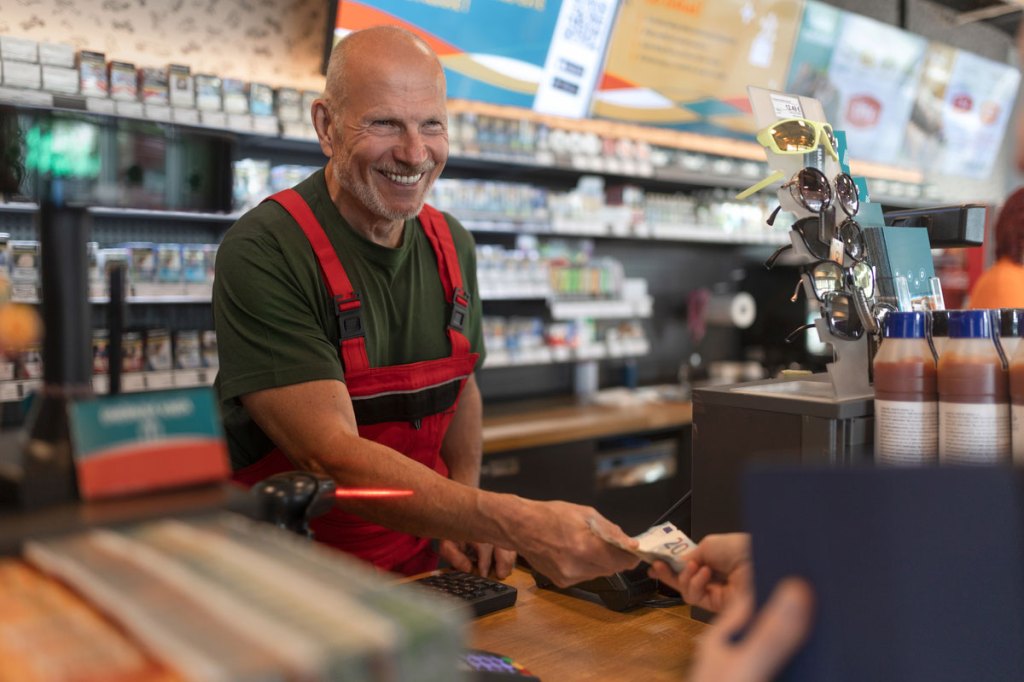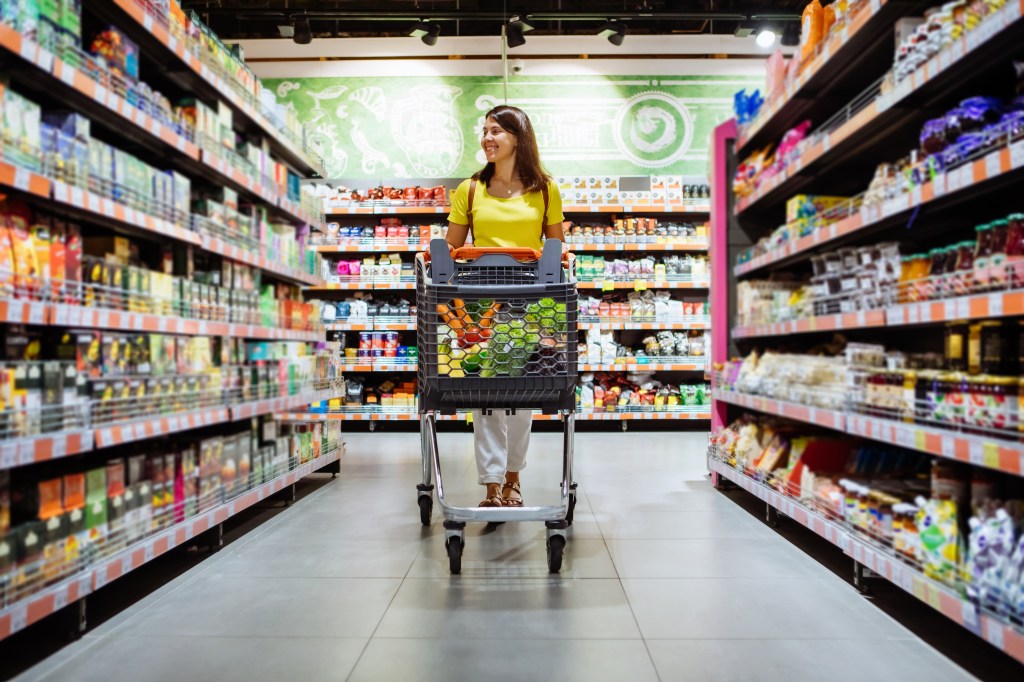Understanding evolving consumer needs and motivations
Consumer needs related to health, wellness, and sustainability are undergoing a transformation and increasing at an accelerated pace. Alongside seeking value for money and cost-saving strategies, consumers are increasingly concerned about the environment and are actively seeking greener lifestyle choices. Sustainable attributes encompass a range of product details that shoppers consider when making purchase decisions. These may include factors such as ingredients, formulations, packaging materials, environmental impacts, recycling information, and other relevant aspects.
Our latest sustainability study reports that 69% of global consumers feel sustainability is more important to them than it was 2 years ago. The country with the highest number of consumers emphasizing sustainability in the MEA region is South Africa (81%), followed by Türkiye (70%), Saudi Arabia (55%), and Egypt (50%).
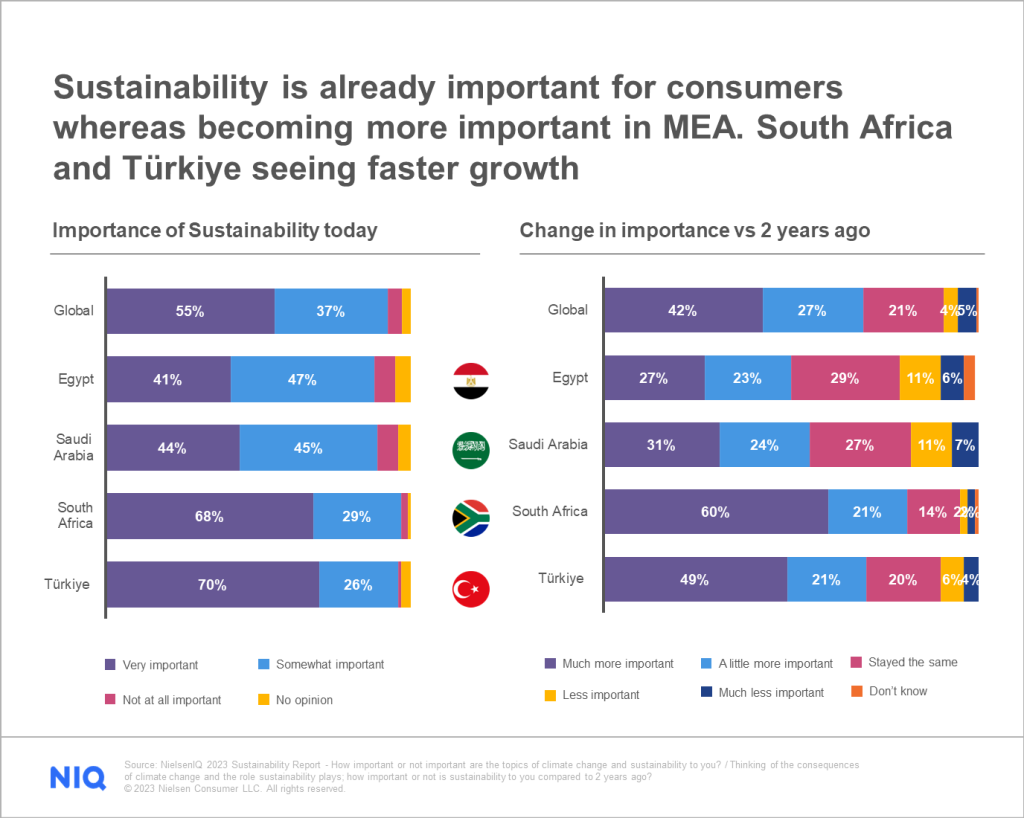
The primary reasons why consumers in the Middle East and Africa prioritize sustainability are due to concerns about the potential impact of climate change on personal health and safety, as well as the increasing visibility of pollution and waste. These findings reflect the sentiments of consumers throughout the MEA region, who are increasingly aware of the personal consequences of extreme weather conditions and are seeking greater corporate responsibility and transparency in response. The Middle East and Africa have experienced a significant impact, with 1 in 3 having personally encountered extreme weather events.
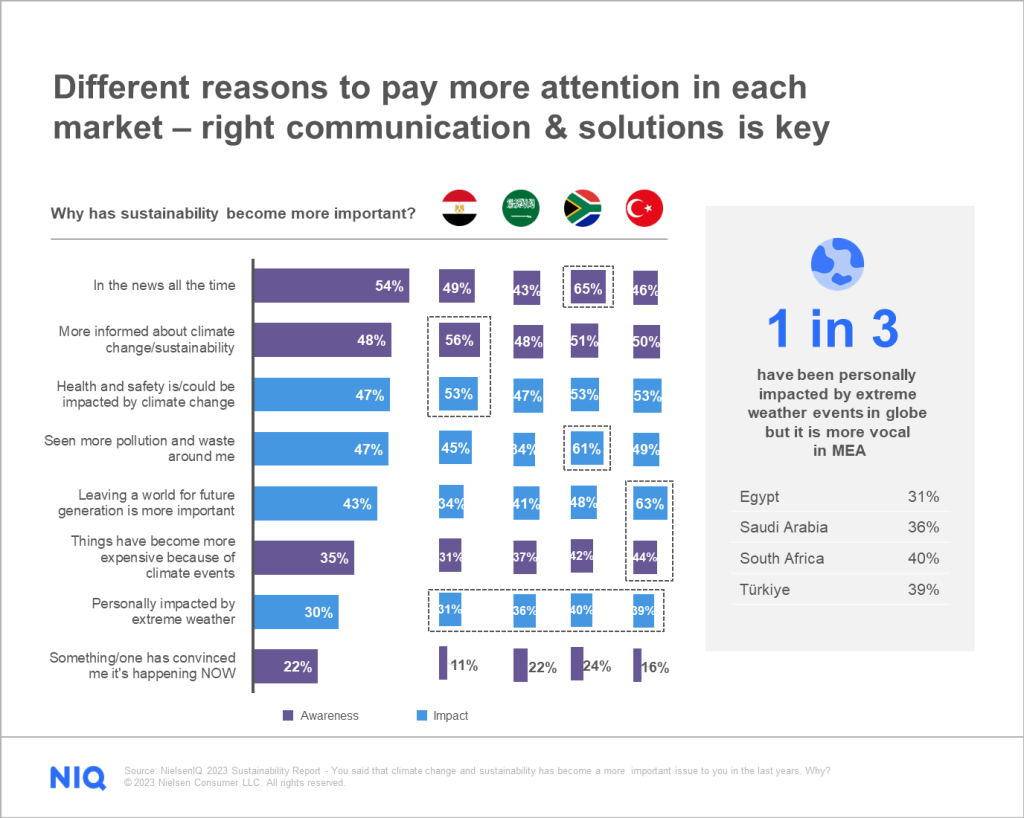
These experiences have spurred consumers to adopt personal sustainability measures such as using reusable shopping bags, reducing waste, and minimizing electricity usage.
Consumers around the region are more committed to sustainability, but many have found it difficult to make daily decisions that support true sustainability impacts. Industry players need to respond to these consumer needs to make it easier for people to live and consume in a sustainable way that aligns with other daily pressures. Much of this responsibility to lead sustainability lies with retailers and brands.
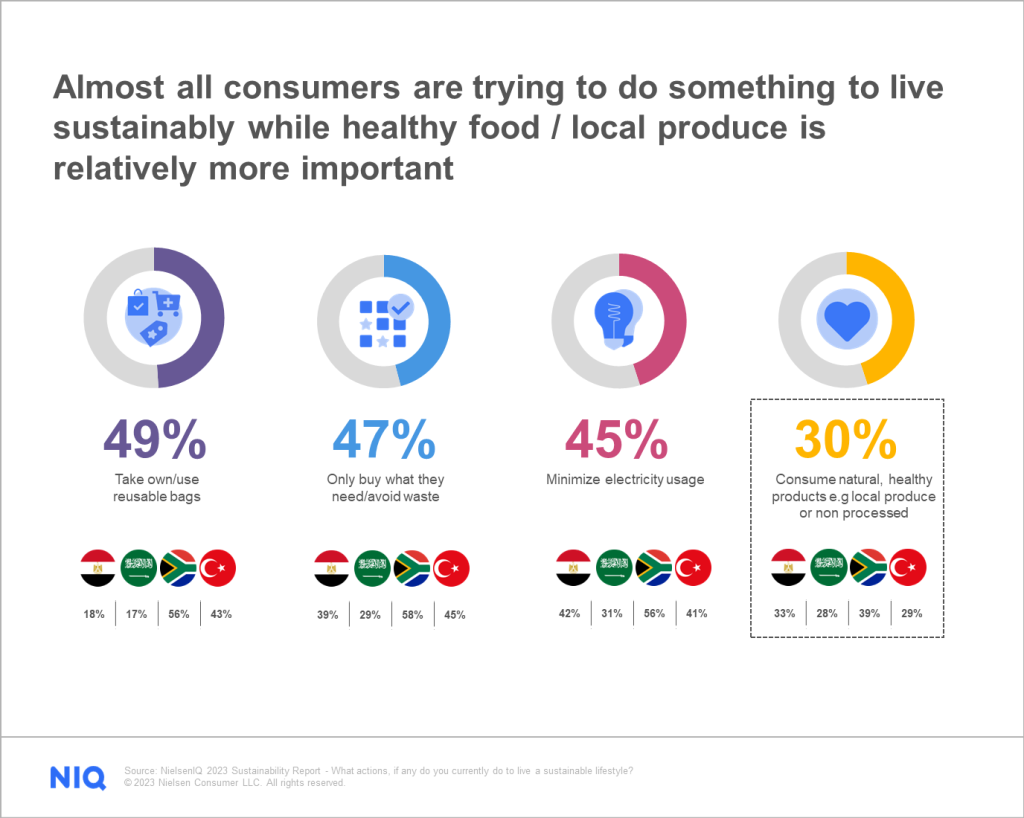
Roadblocks to sustainable consumption
Despite the growing desire for sustainable choices, global consumers face common obstacles, including rising costs (41%), accessibility (35%), and a lack of clarity (26%).
Given the overall awareness levels and the critical stage of climate change globally, there is growing consumer demand for corporate action and accountability. Brands and retailers have a unique opportunity to be seen as partners in the sustainability journey by helping consumers overcome these obstacles. In the current inflationary environment, brands and retailers should highlight both the positive impact on reduced costs and the sustainable impact to drive consumer behavior.
The holistic view of sustainability
For many years, the CPG industry thought of sustainability in terms of packaging — reducing single-use plastics and disposable items became causes for shoppers, brands, and retailers across the world. Today, shoppers expect more. They consider the impact of a product holistically, often educating themselves online and assessing ingredients, the manufacturing process, and even the supply-chain impacts on the planet before making a purchase. This shift in consumer behavior extends across various FMCG categories, from food and beverages to self-care products.
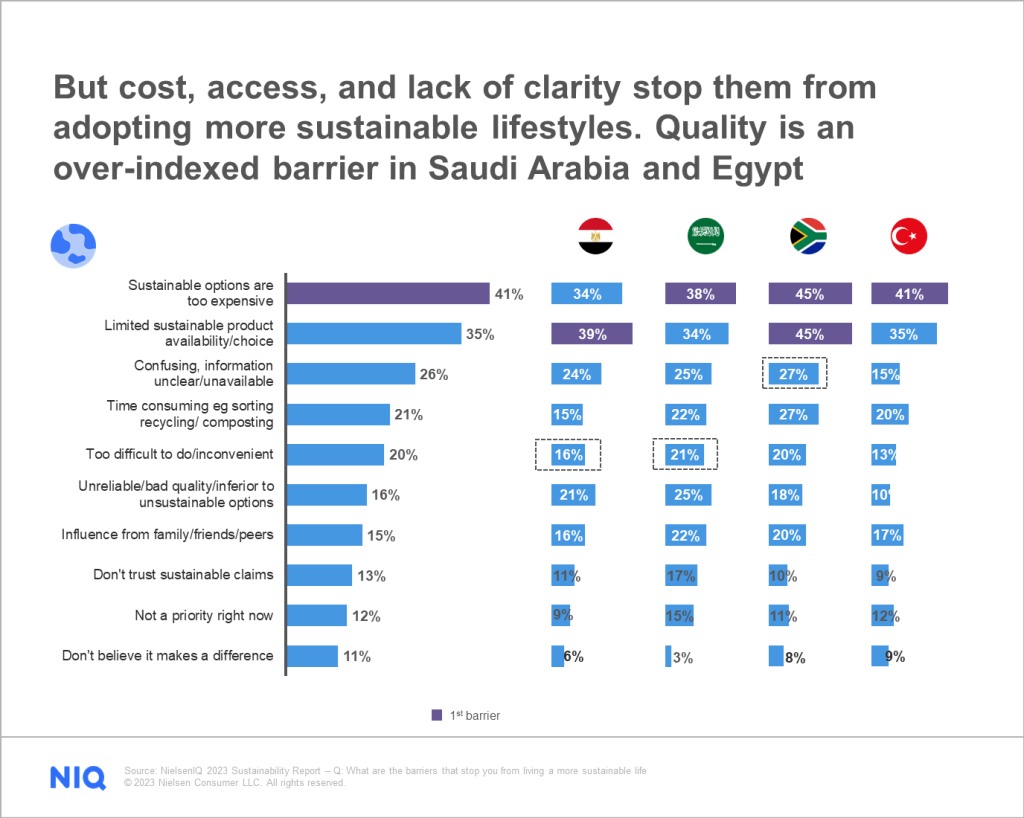
A growing number of global shoppers (76%) think that it is important that companies take the initiative to reduce their environmental footprint. It is even more important for MEA shoppers — 77% in Egypt, 79% in Saudi Arabia and Türkiye, and 86% in South Africa. It’s vital to focus on providing this transparency to meet shopper needs and stay ahead of the competition. Like many challenges facing the FMCG industry, this also presents enormous opportunities for brands and retailers that are prepared to embrace transparency, upgrade their product content, and tell shoppers how they are sustainable.
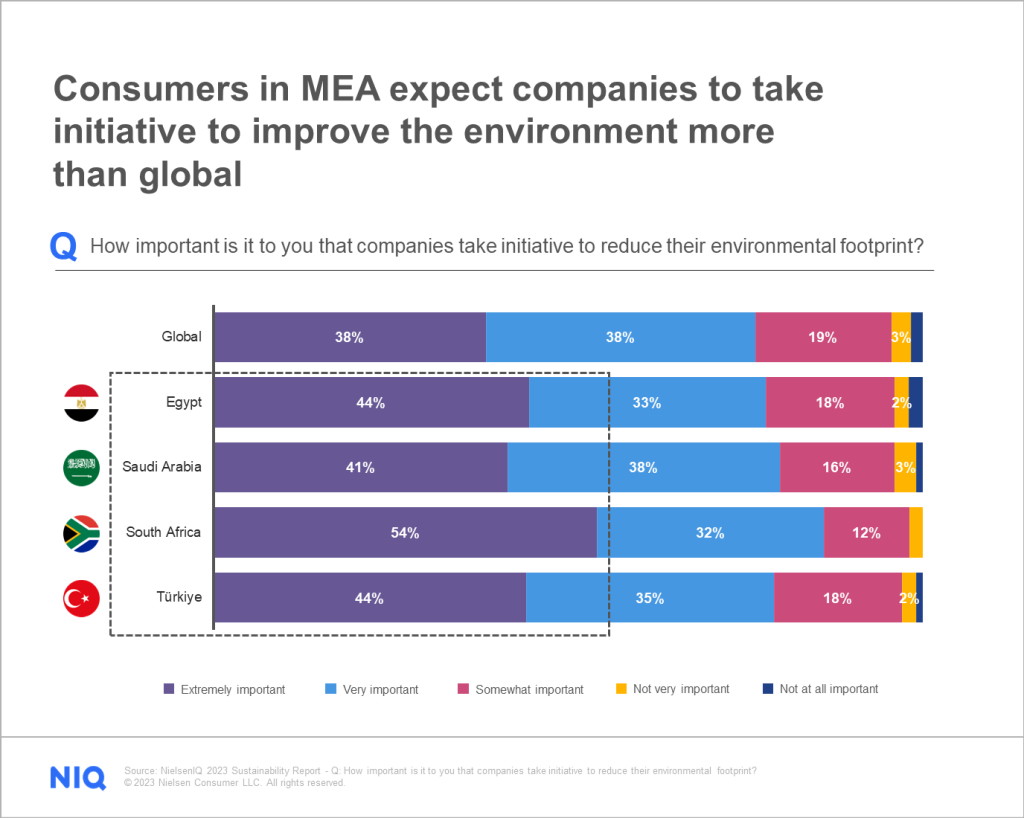
The benefits of sustainable practices
In the evolving FMCG landscape, sustainability has become a central focus for brands, retailers, and consumers.
Sustainable brands have the potential to foster deep connections with consumers. By prioritizing sustainability, brands can build customer loyalty that transcends traditional marketing approaches. They can position themselves as agents of positive change and instill a sense of ownership and purpose throughout their organization. Customers are looking for more transparency from the brands they buy and significant commitments to the environment. It benefits CPG firms greatly to meet consumer needs and expectations because 72% of global consumers say they would pay more for products with sustainable attributes or features.
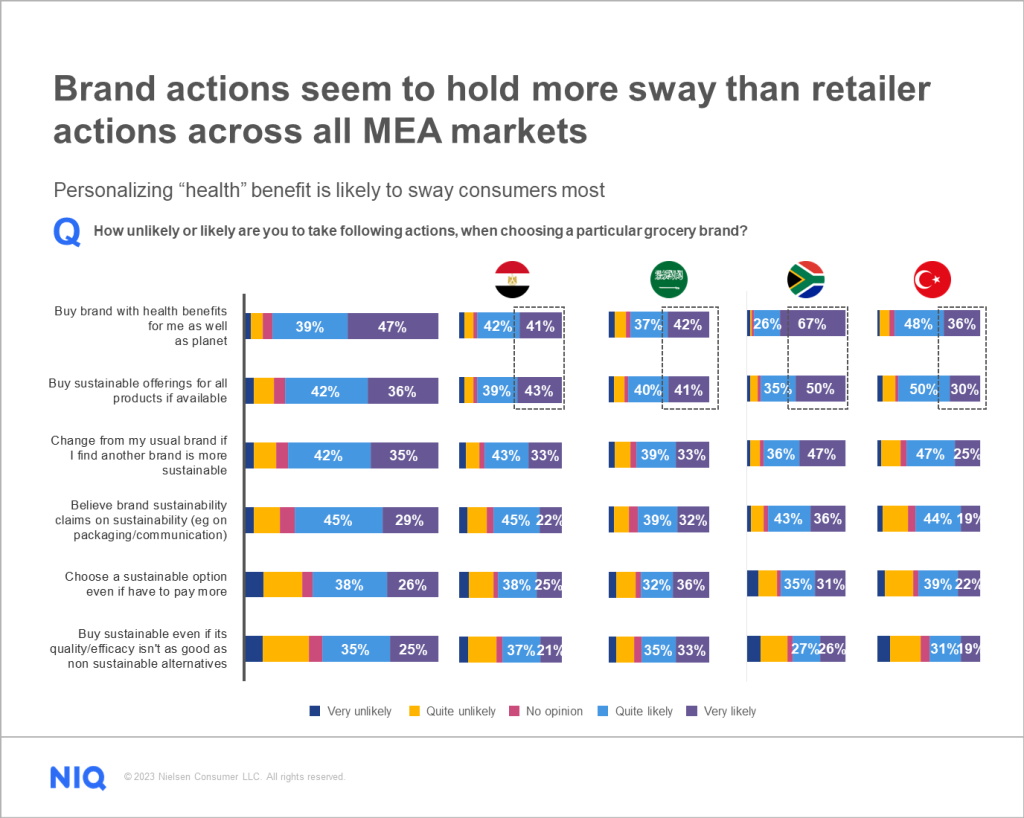
When choosing a retailer, there are a number of factors that play crucial roles in a consumer’s decision-making process: rewards, incentives, a wide assortment of sustainable products, public sustainability targets, and the availability of brands with legitimate sustainability credentials. Retailers that prioritize sustainability and actively cater to the preferences and values of environmentally conscious consumers have a distinct advantage in the Middle East and Africa markets.
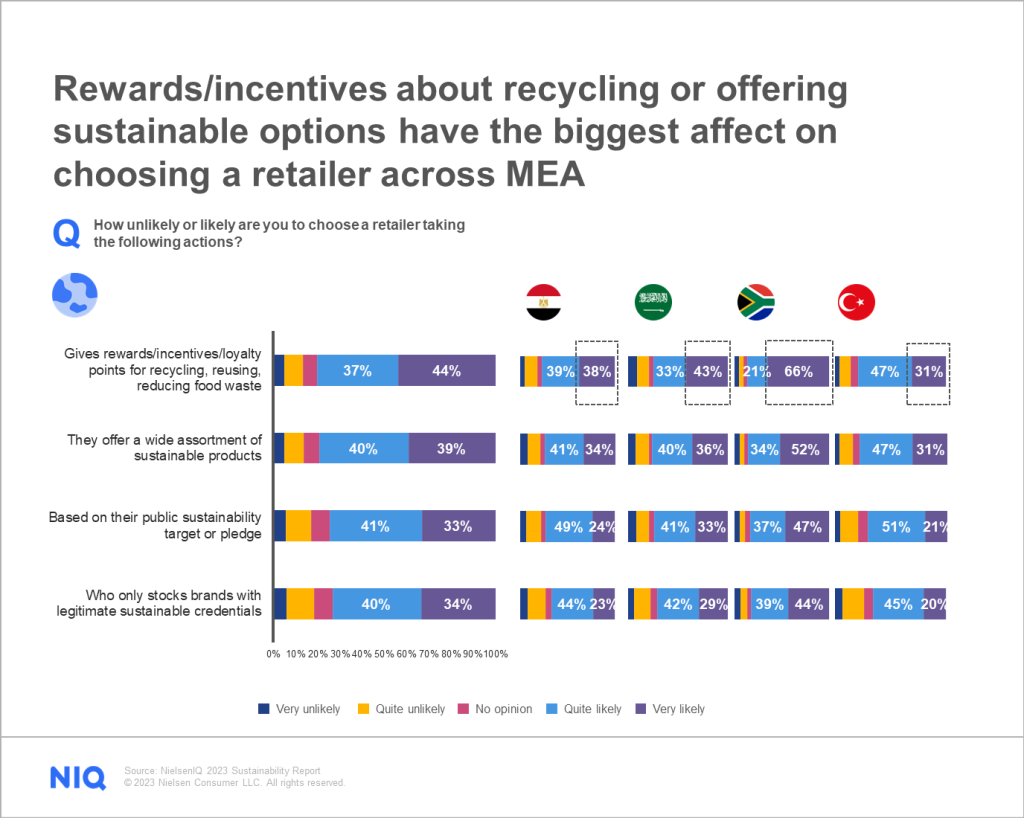
What steps can brands and retailers take to support and encourage consumers’ sustainable lifestyle choices
Consumers want governments to take a more proactive role in driving the sustainability agenda with manufacturers, brands, and retailers — helping to simplify processes like recycling as well as offering greater incentives and mandates for businesses to make meaningful changes.
Sustainable actions from brands and retailers help build a foundation of loyal customers to ensure success for years to come, but the word “sustainable” now holds new meaning for today’s conscious consumers. Sustainable and long-term growth is possible for brands that prioritize a healthy, more equitable world — if they have the right tools.
Despite the increasing demand for sustainable products, 26% of global shoppers still struggle to find them on store shelves. This presents an opportunity for brands and retailers to improve in-store accessibility and increase the assortment of sustainable options. As sustainability continues to grow, many natural brands have the opportunity to better align with consumers and get on the shelf.
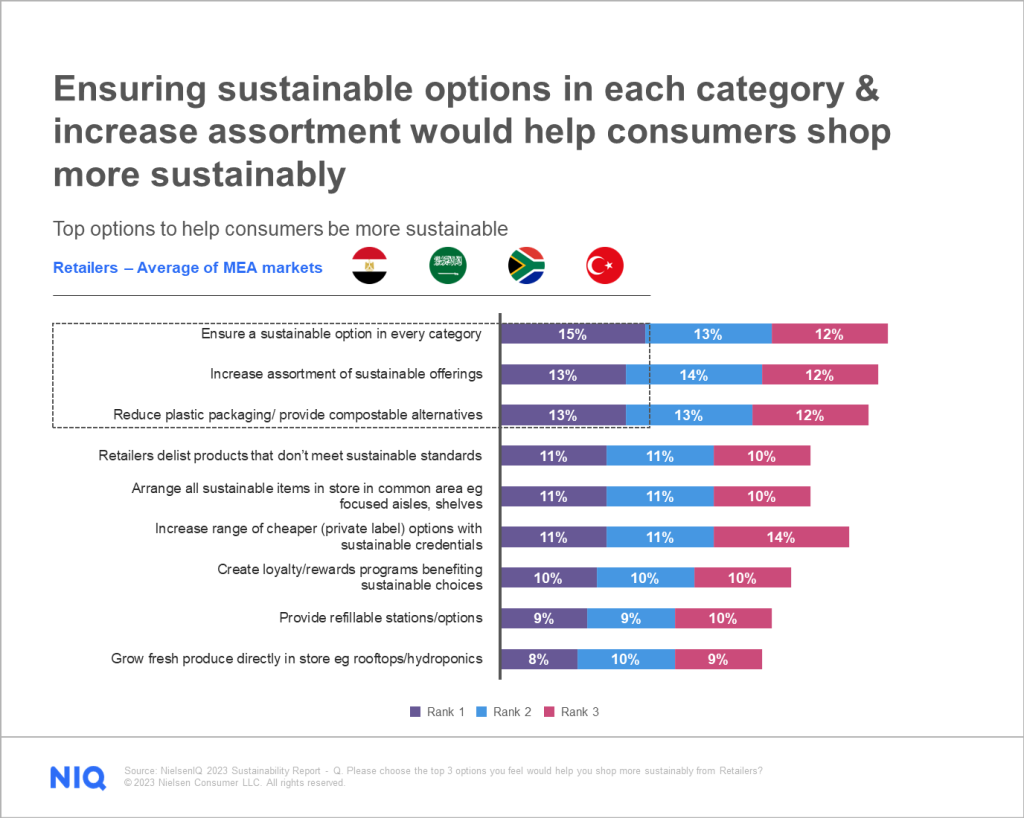
One of the biggest barriers to online shopping is the inability to physically hold and inspect a product. Therefore, adequate online labeling is just as crucial as physical labeling in conveying sustainable attributes. The presence of easily recognizable icons and symbols can assist shoppers in promptly identifying sustainable features.
It’s clear that brands also need to make it easier for shoppers to discover and purchase planet-friendly products by making their sustainability attributes accessible on a product page. Those that do will be rewarded with new shoppers — NIQ data shows that almost two-thirds of shoppers would switch from a brand they usually buy to one that provides more in-depth product details than what exists on the physical label.
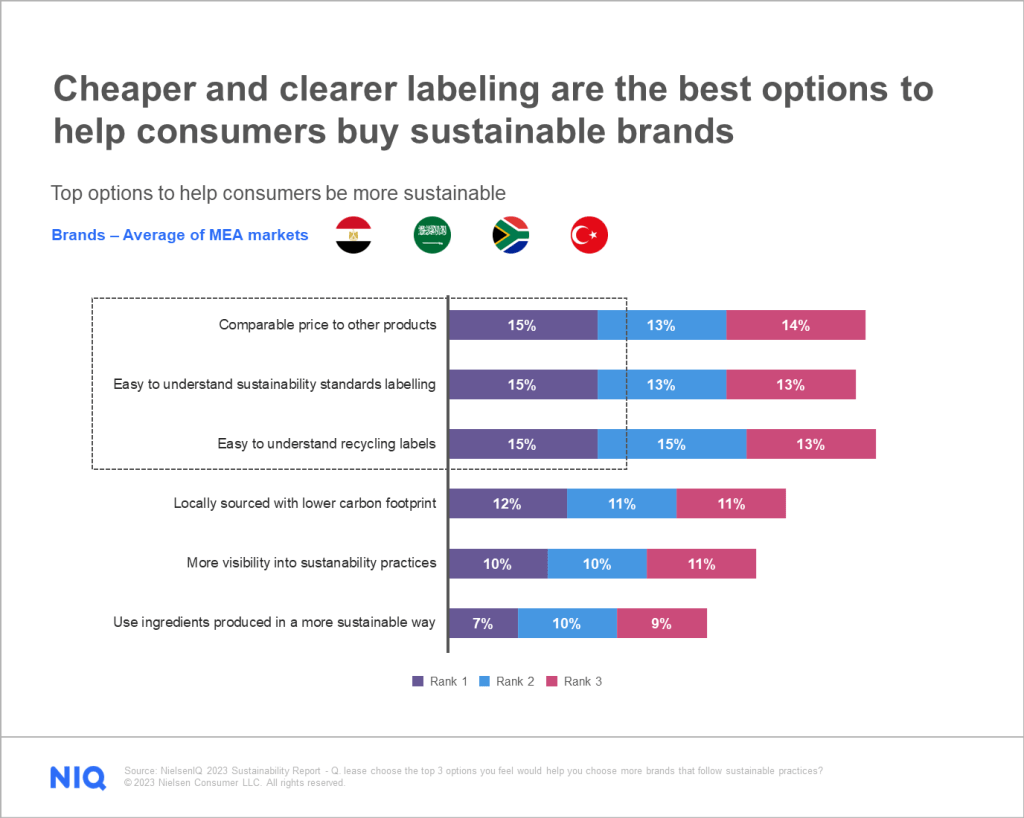

Make bold decisions with superior data
When it comes to pivotal business decisions, NIQ has you covered. Leverage our trusted and comprehensive data and insights to help you turn ideas into impactful strategies for what lies ahead.


